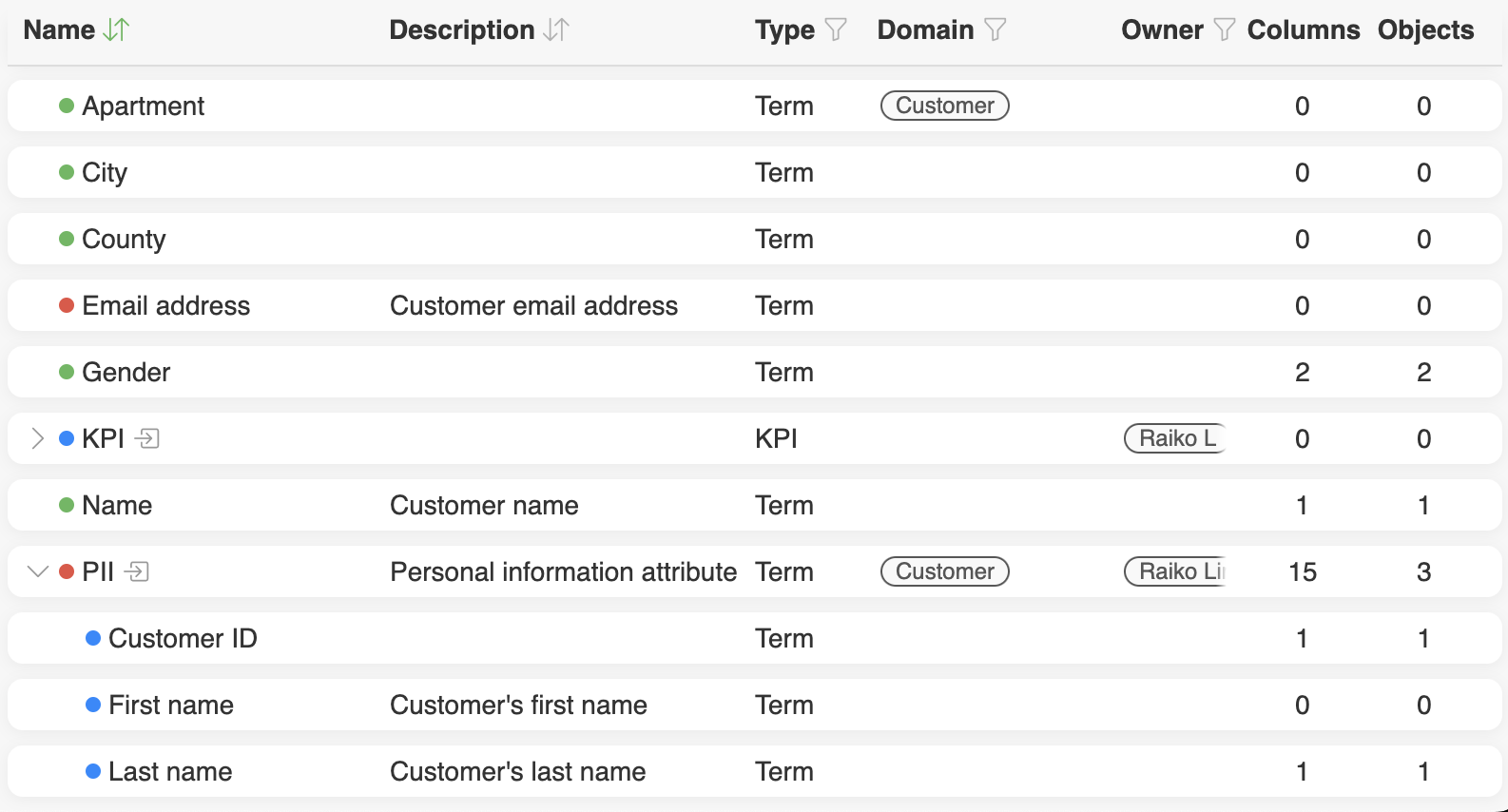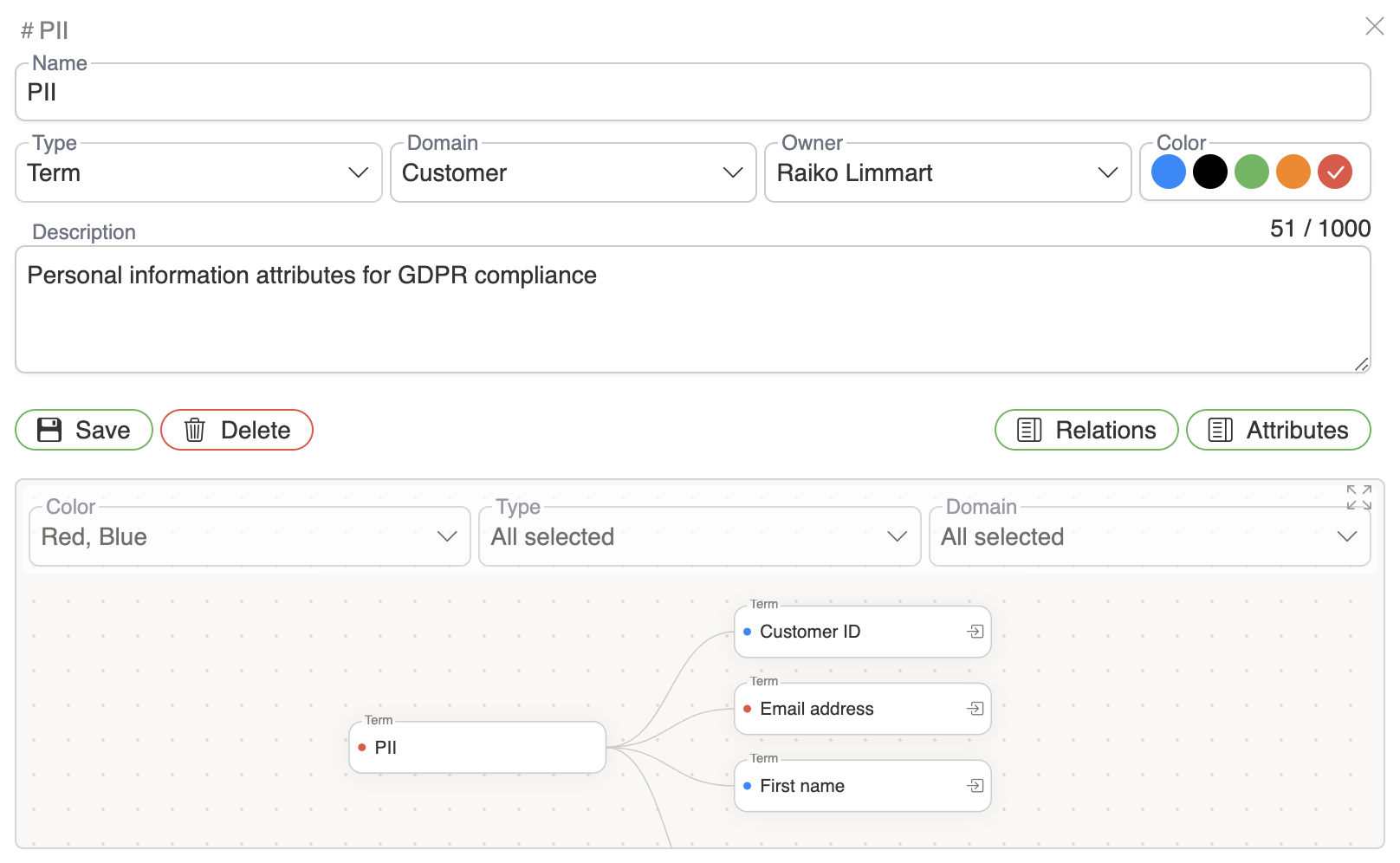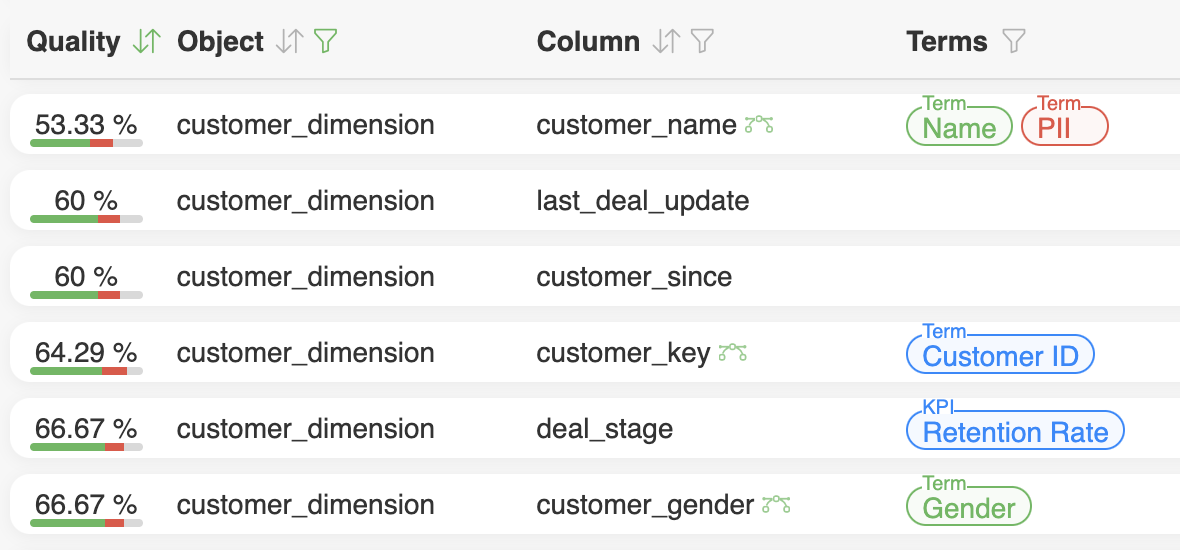A centralized business glossary plays a crucial role in enhancing collaboration and fostering clear communication across teams by standardizing key data term definitions throughout the organization. By serving as a single source of truth for business terminology, the glossary ensures that all stakeholders—whether from technical, analytical, or business departments—are aligned in their understanding of critical data elements. This common framework reduces confusion and the risk of misinterpretation, ensuring consistency in data usage, analysis, and decision-making. Additionally, a well-maintained business glossary helps bridge the gap between technical teams and business users, enabling clearer communication in projects, reporting, and daily operations. It also promotes strong data governance by documenting the meanings, relationships, and business rules of data elements, making it easier to enforce standards and ensure accurate, consistent data usage. As a result, the glossary becomes a powerful tool for scaling data initiatives while maintaining quality, accuracy, and trust in the data used across the organization.
 Business layer view
Business layer view
The platform provides a business layer view of data, allowing users to define business terms with descriptions, types, and domain classifications, making data more relevant and accessible. Ownership can be assigned to responsible users, ensuring accountability. Users can also link terms using custom relationship types, creating a visual graph to support impact analysis and improve data transparency. This helps align data with business goals, enhances governance, and aids in better decision-making.


 Common understanding
Common understanding
A centralized business glossary ensures a common understanding of data across the organization by standardizing definitions of key business terms. Acting as a single source of truth, it aligns technical, analytical, and business stakeholders in their interpretation of data elements, reducing the risk of misinterpretation and confusion. This consistent framework supports accurate data usage, reporting, and decision-making. The glossary also provides clarity on the relationships and rules governing data, making it a critical resource for maintaining high standards of data governance and accuracy.
 Improved collaboration
Improved collaboration
A business glossary improves collaboration by bridging the gap between technical and non-technical teams. With clear, standardized data definitions, it enables seamless communication across departments, ensuring everyone operates with the same understanding. This shared framework strengthens teamwork on projects and reporting, as all stakeholders can confidently use and interpret data. By aligning terminology and expectations, the glossary enhances cross-functional collaboration, making it easier to scale data initiatives and drive strategic business decisions.



